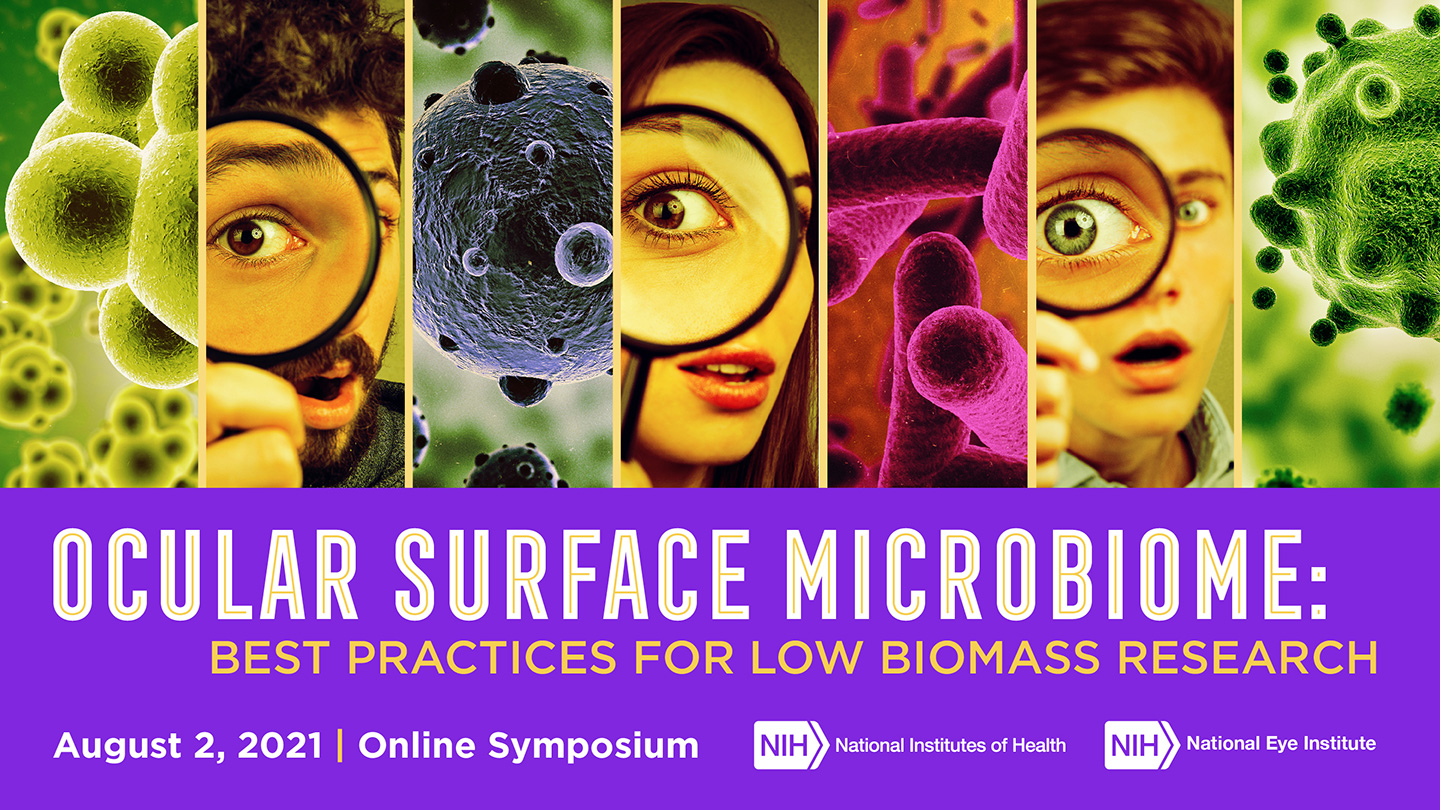Investigating the Ocular Surface Microbiome:
Best Practices for Low-Biomass Microbial Research (Online Symposium)
August 2, 2021
3:00 pm – 8:00 pm Eastern Daylight Time
12:00 pm – 5:00 pm Pacific Daylight Time
2:00 pm – 7:00 pm Central Daylight Time
5:00 am – 10:00 am Australian Eastern Standard Time
8:00 pm – 1:00 am British Summer Time
Not sure what time it is locally? Use the Time Zone Converter for local times.
SPEAKER BIOSKETCHES
Sinem Beyhan, PhD
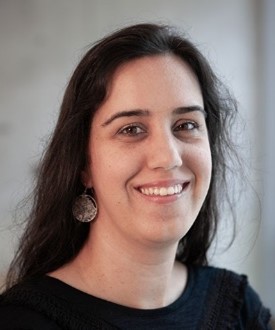 Assistant Professor
Assistant Professor
University of California at San Diego
J. Craig Venter Institute
Dr. Beyhan is interested in host-microbe interactions in general, and has been studying fungal pathogens, Histoplasma and Coccidioides species. Lately, she has been developing in vitro models to study host-microbe interactions to provide a reproducible platform to study host and microbial response to infection.
Timothy A. Blenkinsop, PhD
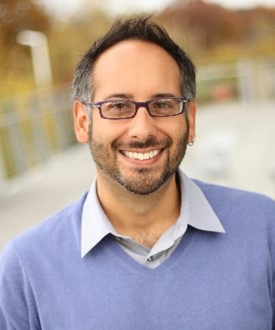 Associate Professor
Associate Professor
Department of Ophthalmology
Icahn School of Medicine at Mount Sinai
Dr. Blenkinsop’s laboratory studies the plasticity of the adult human eye in normal and pathological states. They currently focus on the role of the retinal pigment epithelium (RPE), a layer of cells supporting the photoreceptors of the retina. The RPE exhibits regenerative capacity in some conditions and Dr. Blenkinsop’s objective is to better understand the epigenetic state and molecular architecture of this plasticity to find ways to activate this potential endogenously. The approach is to develop in vitro models of eye diseases using cells isolated from human donor tissues, in the effort to more closely mimic human eye disorders and examine their cellular, molecular, and physiological foundation. In parallel, Dr. Blenkinsop’s team is developing cell transplantation therapies for patients with retinal degeneration due to diseases such as age-related macular degeneration and eye injury. During quarantine, to learn more about SARS-CoV-2 and COVID-19, the group has been testing whether direct exposure to the eye can lead to systemic infection by SARS-CoV-2.
Michael F. Chiang, MD
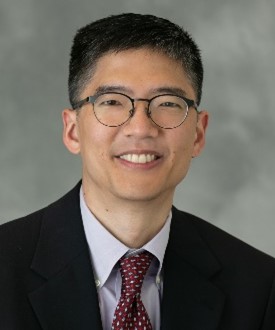 Director
Director
Office of the Director
National Eye Institute, NIH
Dr. Chiang is Director of the National Eye Institute, at the National Institutes of Health in Bethesda, Maryland. His clinical practice focuses on pediatric ophthalmology and strabismus, and he is board-certified in clinical informatics. His research develops and applies biomedical informatics methods to clinical ophthalmology in areas such as retinopathy of prematurity (ROP), telehealth, artificial intelligence, clinical information systems, data science, and genotype-phenotype correlation. His group has published over 200 peer-reviewed papers and has developed an assistive artificial intelligence system for ROP that received Breakthrough Status from the U.S. Food and Drug Administration
Thuy Doan, MD, PhD
 Associate Professor
Associate Professor
Proctor Foundation
University of California at San Francisco
Dr. Doan is a clinician scientist. His laboratory at the University of California, San Francisco is a metagenomic epidemiology laboratory that takes innovative approaches to understand how the various human microbiomes (ocular, gut, and upper respiratory tract) respond to clinically relevant perturbations in randomized controlled trials. Specifically, the laboratory seeks to identify mechanisms by which mass drug distribution to preschool children in Sub-Saharan countries leads to improvement in childhood mortality. Concurrently, antibiotic resistance is carefully tracked in these communities to inform public health policies. In addition to the molecular epidemiology work, Dr. Doan’s group focuses on using genomic technologies to efficiently identify causes of ocular inflammation.
Christopher Dupont, PhD
 Associate Professor
Associate Professor
J. Craig Venter Institute
Dr. Dupont is an Associate Professor in the Genomic Medicine, Environment & Sustainability, and Synthetic Biology groups at JCVI. He studies a variety of human microbiome niches where low biomass and high amounts of host DNA provide unique technical challenges.
Suzanne M. J. Fleiszig, OD, PhD, FAAO
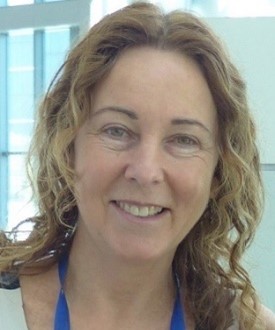 Professor
Professor
Optometry and Vision Science, Infectious Disease and Immunity, and Microbiology
University of California, Berkeley
Dr. Fleiszig is an Optometrist with a PhD in Microbiology, trained at the University of Melbourne. Since completing a postdoctoral fellowship in the Department of Medicine, Division of Infectious Disease at Harvard Medical School, she has been a Professor at the University of California, Berkeley with appointments in multiple programs. She also holds an adjunct appointment at the Proctor Foundation at the University of California, San Francisco. As both an ocular biologist and microbiologist, Dr. Fleiszig has spent more than three decades focused on understanding how the cornea resists bacterial colonization, mechanisms by which that resistance becomes compromised, and strategies bacteria use to colonize susceptible corneas. She is the current chair of the council on Microbial Science for the American Society for Microbiology. She is also a standing member of the NIH Bacterial Pathogenesis Study Section.
Gregory Gloor, PhD
 Professor and Chair
Professor and Chair
Department of Biochemistry
Schulich School of Medicine and Dentistry
University of Western Ontario
Dr. Gloor is a professor and chair of the Department of Biochemistry at the Schulich School of Medicine and Dentistry. He has studied microbiomes and their analysis for over a decade. He uses and develops wet lab and computational tools to examine 16S rRNA gene composition, gene content and expression of mixed population samples (meta-genomes and meta-transcriptomes), and metabolomic analysis of clinical samples.
Kristi L. Hoffman, PhD, MPH
 Assistant Professor
Assistant Professor
Department of Molecular Virology and Microbiology
Baylor College of Medicine
Dr. Hoffman is an Assistant Professor in the Department of Molecular Virology and Microbiology at Baylor College of Medicine in Houston, Texas. She obtained her PhD from Baylor in 2012, studying the role of estrogen receptors in bladder cancer. During her graduate studies she became interested in the role of diet in bladder cancer risk and progression and went on to earn a Master’s in Public Health with a focus in Food, Nutrition, and Health at the Johns Hopkins Bloomberg School of Public Health. Through her coursework she came to appreciate the potential of the microbiome in modulating the body’s response to diet and its role in cancer etiology and progression. She explored these relationships further as a postdoctoral fellow in the Cancer Prevention Research Training Program at MD Anderson Cancer Center, where she developed a particular fondness for the oral microbiome as a biomarker of disease risk. In 2018 she returned to Baylor College of Medicine as a project manager with the Center for Metagenomics and Microbiome Research. She currently leads the Center’s project management team and continues to explore the potential of extraenteric microbiota to predict inflammatory disease states. She loves all things microbiome, teaching, and helping others plan and execute their metagenomic studies.
Heidi H. Kong, MD, MHSc
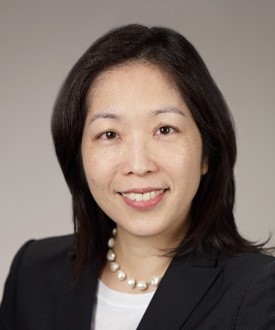 Head
Head
Cutaneous Microbiome and Inflammation Section
Senior Investigator
Dermatology Branch
National Institute of Arthritis and Musculoskeletal and Skin Diseases, NIH
Dr. Kong is Senior Investigator and Head of the Cutaneous Microbiome and Inflammation Section, Dermatology Branch, NIAMS, NIH. Her research has advanced our understanding of the microbial communities of human skin. Dr. Kong combines translational research expertise with advanced genomic technologies to study skin microbes to gain insights into the pathogenesis of skin diseases and to potentially identify therapeutics for patients. Dr. Kong’s ongoing work includes investigations in the microbiome of inflammatory skin diseases including atopic dermatitis and in patients with primary immunodeficiency syndromes.
Karen E. Nelson, PhD
 Chief Scientific Officer
Chief Scientific Officer
Thermo Fisher Scientific
Dr. Nelson received her PhD from Cornell and is an elected member of the National Academy of Sciences and a Fellow of the American Academy of Microbiology. Dr. Nelson has authored or co-authored more than 220 peer reviewed publications and is currently editor-in-chief of the journals Microbial Ecology and PNAS Nexus. Dr. Nelson is a pioneer of the human microbiome field.
Jessica L. Mark Welch, PhD
 Associate Scientist
Associate Scientist
Bay Paul Center for Comparative Molecular Biology and Evolution
Marine Biological Laboratory
Dr. Welch is an Associate Scientist at the Marine Biological Laboratory in Woods Hole. She investigates the structure and organization of microbial communities in the human mouth as well as in the gut and in marine organisms, using a combination of fluorescence spectral imaging microscopy and metagenomic sequence analysis.
Kelly K. Nichols, OD, MPH, PhD, FAAO
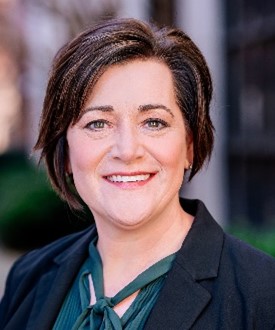 Dean
Dean
School of Optometry
University of Alabama at Birmingham
Dr. Nichols received her Doctor of Optometry degree from the University of California, Berkeley, completed a residency in ocular disease at Omni Eye Specialists of Colorado, and earned her MPH degree in biostatistics and PhD degree in vision science at Ohio State University. In 2014, Dr. Nichols was named Dean of the University of Alabama at Birmingham School of Optometry. Dr. Nicholas is co-director of the Ocular Surface Institute at the Clinical Eye Research Facility. Dr. Nichols has served on each of the TFOS steering committees (DEWS, DEWS II, Contact Lens Discomfort, and MGD workshops). A leading expert in dry eye disease, Dr. Nichols is or has been on the editorial boards of the journals Optometry and Vision Science, and The Ocular Surface, and is extensively published with over 105 papers. Dr. Nichols has previous (PI) and current (Co-I) NEI, NIH funding in the area of dry eye and MGD. She has participated in conducting numerous clinical trials and research studies over the last 25 years. Dr. Nichols is a board member of the research advocacy group National Alliance for Eye and Vision Research (NAEVR)/Alliance for Eye and Vision Research (AEVR) and is President of the Association of Schools and Colleges of Optometry.
Joseph F. Petrosino, PhD
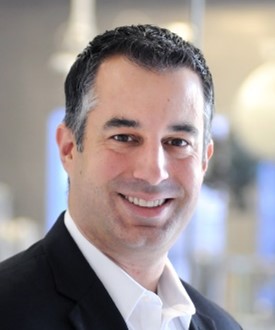 Professor and Chair
Professor and Chair
Department of Molecular Virology and Microbiology
Director
Alkek Center for Metagenomics and Microbiome Research
Human Genome Sequencing Center
Dan L. Duncan Cancer Center
Baylor College of Medicine
Dr. Petrosino is a professor, Kyle and Josephine Morrow Endowed Chair in Molecular Virology, and chair of the Department of Molecular Virology and Microbiology at Baylor College of Medicine. He also directs the Alkek Center for Metagenomics and Microbiome Research (Alkek CMMR) and holds joint appointments in Baylor’s renowned Human Genome Sequencing Center, Dan L Duncan Comprehensive Cancer Center, and the Department of Ophthalmology. Dr. Petrosino’s laboratory investigates how the human microbiome influences host health and disease with the goal of introducing new methods to diagnose and treat a variety of human diseases. He has authored or co-authored more than 200 original papers on these efforts. In addition, Dr. Petrosino launched Diversigen in 2015, a Baylor startup that provides microbiome analytics services and diagnostic insights to pharmaceutical companies, which was purchased by OraSure Technologies in November of 2019. He is also chief scientific officer for another Baylor microbiome-based startup, Anizome, which launched in 2018 with the goal of delivering microbiome-based therapies to companion animals.
Chrysi Sergaki, PhD
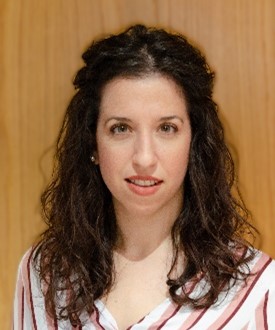 Interim Head of the Microbiome Section
Interim Head of the Microbiome Section
National Institute for Biological Standards and Control
Dr. Sergaki joined the National Institute for Biological Standards and Control (NIBSC), UK, as a microbiome scientist after completing her PhD in 2019 at the University of Warwick, UK, where she studied microbial interactions in fungi and bacteria and their impact on the host. At NIBSC, she leads research projects on the gut microbiome, the development of whole cell standards for the microbiome field, as well as a large international collaborative study to establish the first WHO reference reagent for NGS analysis of microbiome samples. Dr. Sergaki recently became as the Interim Head of the Microbiome section at NIBSC, leading the microbiome research and standardization projects within the Institute.
Gordon C. Smith, MD, PhD, DSc
 Professor
Professor
Department of Obstetrics and Gynecology
University of Cambridge
Dr. Smith is chair of Obstetrics and Gynecology, University of Cambridge, and a consultant in Maternal-Fetal Medicine at the Rosie Hospital, Cambridge, UK. He has MD, PhD, and DSc degrees from Glasgow University. He held Wellcome Trust research training fellowships at Glasgow University, UK (1992-93), and Cornell University, USA (1996-1999). He is currently a Wellcome Investigator (2020-2025) and theme lead for Women’s Health and Pediatrics in the National Institute for Health Research Cambridge Biomedical Research Centre. He was elected a Fellow of the UK Academy of Medical Sciences in 2010. His current research is focused on placentally-related complications of human pregnancy, addressing mechanisms and prediction of disease.
Anthony St. Leger, PhD
 Assistant Professor
Assistant Professor
Department of Ophthalmology and Immunology
University of Pittsburgh
Dr. St. Leger is an Assistant Professor at the University of Pittsburgh, and his laboratory focuses on understanding how the microbiome may influence susceptibility to ocular surface disease. When he was a postdoctoral fellow in the laboratory of Dr. Rachel Caspi, he was able to identify Corynebacterium mastitidis as an immunologically relevant component of the murine ocular microbiome. His laboratory is now interested in identifying the microbial factors that allow bacteria to colonize the eye and the microbial factors responsible for generating mucosal immunity at the ocular surface.
Michael A. Steinmetz, PhD
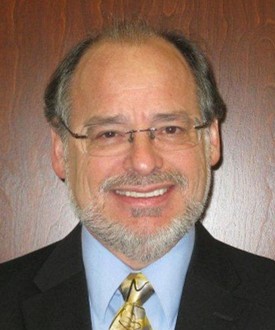 Director
Director
Division of Extramural Science Programs
National Eye Institute, NIH
Dr. Steinmetz is a graduate of the University of Michigan and Michigan State University and did postdoctoral training in the Laboratory of Vernon Mountcastle in the Department of Physiology at The Johns Hopkins Medical School. He remained at Johns Hopkins for more than twenty years as a faculty member in the Department of Neuroscience and the Zanvyl Krieger Mind-Brain Institute. His research program studied the neurophysiological mechanisms of selective attention and spatial perception by combining behavioral studies with single-unit electrophysiology in awake monkeys and fMRI experiments in humans and non-human primates. Dr. Steinmetz joined the National Eye Institute after serving five years as the Scientific Review Administrator for the Central Visual Processing and Cognitive Neuroscience study sections, and as a Referral Officer for the Health of the Population and Risk Prevention and Health Behavior review groups at NIH’s Center for Scientific Review. He served as the Director of the Strabismus, Amblyopia, and Visual Processing Program at NEI from 2007 to 2014, and as the Director of the Division of Extramural Science Programs since October of 2014. He serves on the coordinating committees of numerous trans-NIH and trans-agency initiatives including the NIH BRAIN and Neuroscience Blueprint programs, and the Programmatic Panel of the DOD’s Vision Research Program.
Russell N. Van Gelder, MD, PhD
 Professor and Chair
Professor and Chair
Department of Ophthalmology
University of Washington
Dr. Van Gelder is a clinician-scientist. His clinical expertise is in ocular inflammatory disease. Dr. Van Gelder’s laboratory has been pursuing nucleic acid-based diagnostics of ocular infectious disease for the past 20 years.
Mark Willcox, PhD, DSc
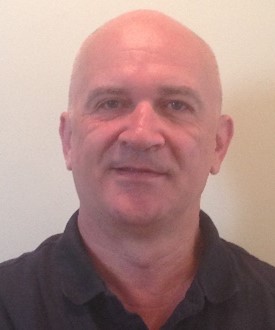 Professor
Professor
School of Optometry and Vision Science
Faculty of Medicine and Health
University of New South Wales
Professor Willcox is a medical microbiologist who specializes in ocular surface microbiology and how it changes during contact lens wear and during ocular surface antibiotic therapy. For the past five years his team has been studying the ocular surface microbiome, including composition, stability, and geography.
Michael E. Zegans, MD
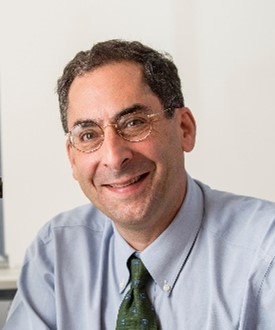 Professor
Professor
Department of Surgery (Ophthalmology) and Department of Microbiology and Immunology
Dartmouth-Hitchcock Medical Center
Geisel School of Medicine at Dartmouth
Dr. Zegans has been on the faculty at Geisel School of Medicine at Dartmouth in Hanover, New Hampshire, since 1998. He is a Professor of Surgery and of Microbiology and Immunology and the Section Chief of Ophthalmology at Dartmouth-Hitchcock Medical Center as well as the Francis A. L’Esperance, Jr., MD, Visual Sciences Scholar. He completed his residency at the University of Virginia and a fellowship in cornea and uveitis at the F.I. Proctor Foundation at the University of California, San Francisco. His subspecialty clinical focus is on corneal diseases and uveitis. He was the primary investigator for 5K08EY13977-4 – Biofilm Formation and P. aeruginosa infection of the eye and R21 EY02877-01 – Fungal virulence factors during corneal infections. He has served as a co-investigator for the Steroids for Corneal Ulcers Trial (SCUT) and Mycotic Ulcer Treatment Trial (MUTT). Additionally, he is the Dartmouth Site Director for the National Eye Institute-funded Standardization of Uveitis Nomenclature (SUN) study and on the steering committee for the Zoster Eye Disease Study (ZEDS). Dr. Zegans’ current laboratory research focuses on fungal corneal infection.
